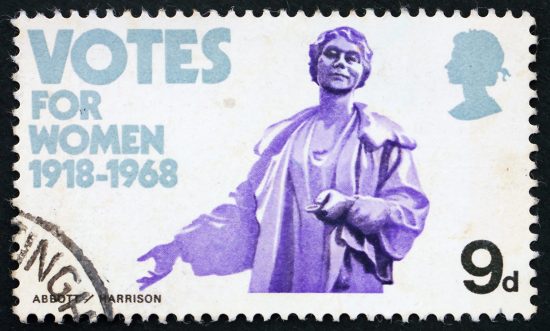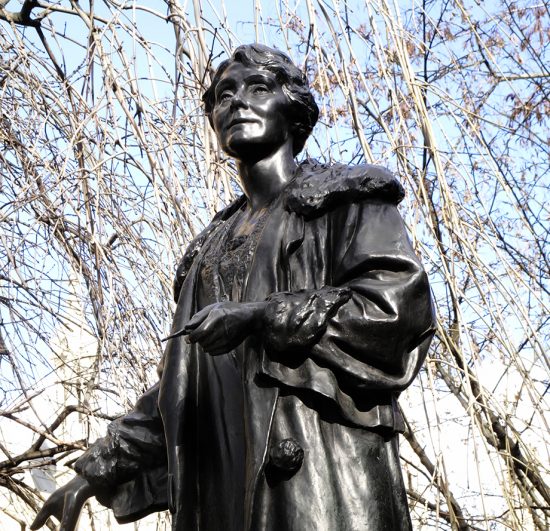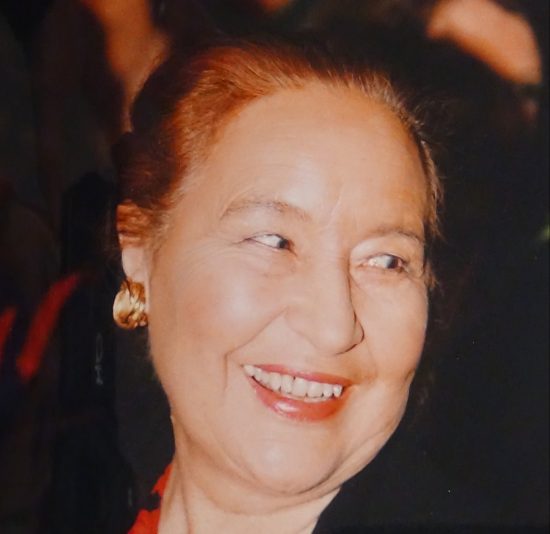Sanjima DeZoysa, NCT’s Parent Content Manager, shares what the suffragettes mean to her and why they would have cheered on NCT today

I grew up with my parents’ mantra in my ears: ‘You have to work twice as hard to get where you want because you’re a woman’. There have been times in my life when I felt that belief was outdated and others when I felt disheartened and shocked that it still rang true.

I find myself reflecting on my experiences more than ever, as 6 February 2018 marks 100 years since women (over 30) were given the right to vote. It was a momentous turning point for equal rights driven by the suffragettes’ power and protest.
What would Emmeline Pankhurst, the leader of the suffragette movement, think of gender equality today? I think she’d be proud of the strength of women but she’d probably also unfurl the suffragette banners and march again to trample everyday sexism, such as the archaic gender pay gap, while celebrating the roar of womens’ voices through movements like #MeToo.
The suffragettes and their beliefs are as relevant today as they were 100 years ago.
For me, the suffragettes and their beliefs are as relevant today as they were 100 years ago. I realise now that they’ve always been entwined in my life. The founder of my school, Frances Mary Buss, was at the forefront of the campaigns for girls’ education. Buss was a suffragette herself and a member of the London Suffrage Committee.
As a young girl, learning about the progress brought about by women like Buss and Pankhurst was inspirational. Thanks to them I’ve always had the conviction to do something when sexism – and any kind of inequality – rears its ugly head. How could I not when I know about the sacrifices and injustices pioneering women endured for the life I have today?
And that motivation continues in my job at NCT where I learned about another phenomenal woman, the charity’s founder, Prunella Briance. Her generation of women had the right to vote but not autonomy of what happened to them during childbirth.

She wanted to fundamentally change how women were treated. She famously said she started NCT because “I realised that someone had to do something, and so I did”.
Prunella rallied women together in the same way the suffragettes did and founded what is now the UK’s largest charity for parents.
I don’t think it’s a coincidence that NCT and the suffragettes share the same representative colours of purple (dignity), white (purity) and green (hope).
In fact, our KnittingNCTtogether project is based on these very colours.
The original aim of NCT was to teach women how to prepare themselves for birth through antenatal education. Women supporting women to find their voice and question what happened to them during childbirth.
Prunella’s call to arms sparked a catalyst for change and paved the way to:
And the drive for progress continues. Last year we launched our #HiddenHalf campaign to gain support and awareness for the half of new mothers who experience mental health problems and don’t get the help or treatment they need.
Because of this campaign and every one before, I am proud to be part of NCT and our continued ambition to make a positive difference to women’s experience of childbirth and parenthood.

Now, as a mum to a girl and a boy, my journey to gender equality has taken on a new challenge. My mantra is different to my parents: I want to empower my daughter to know that she is no less because she is a girl and educate my son to know that he is no more because he is a boy.
I hope that in raising a woman and a man who expect, create and respect equality; I play my part in continuing what Emmeline, Frances and Prunella began. None of these remarkable women should be relegated to history; they set the course for our future.